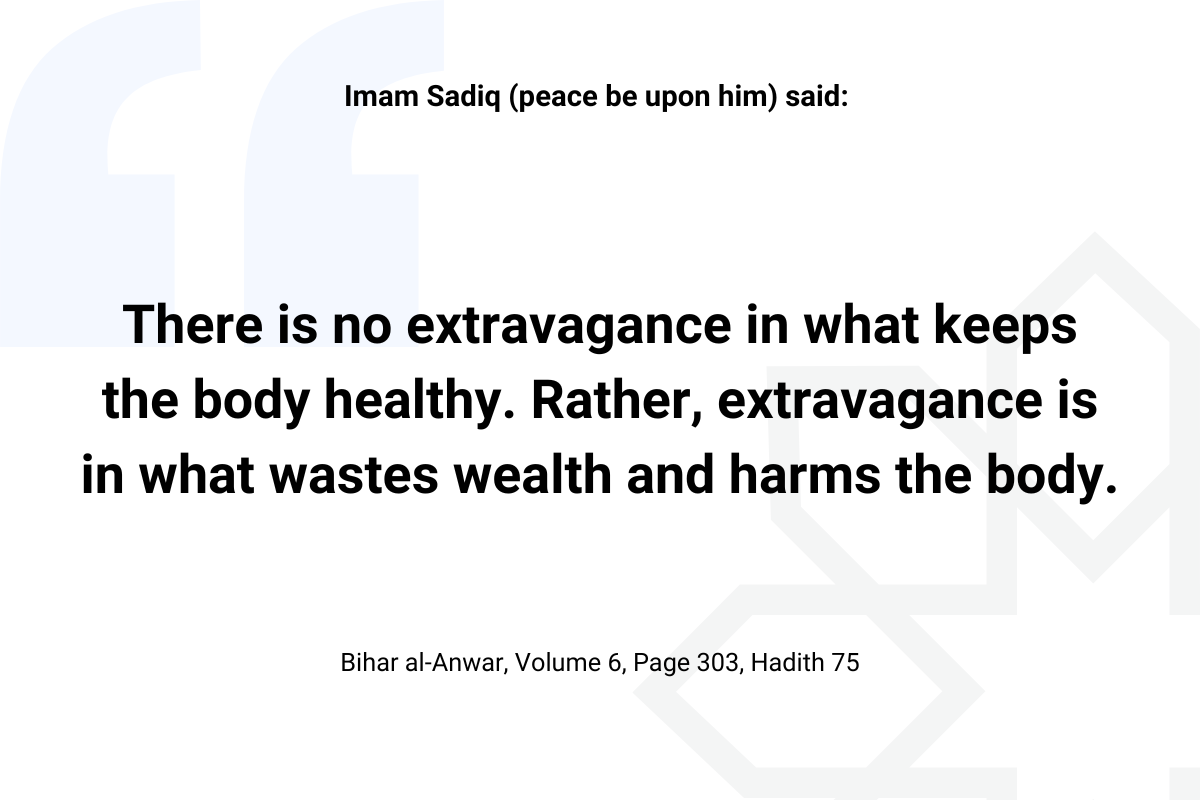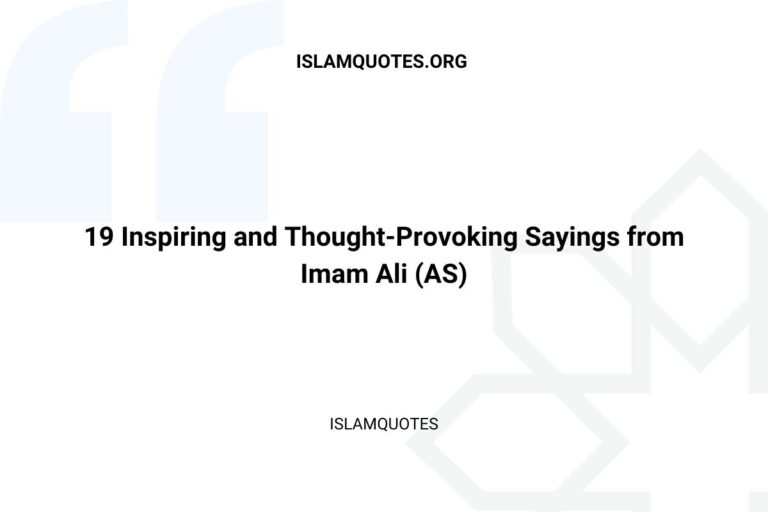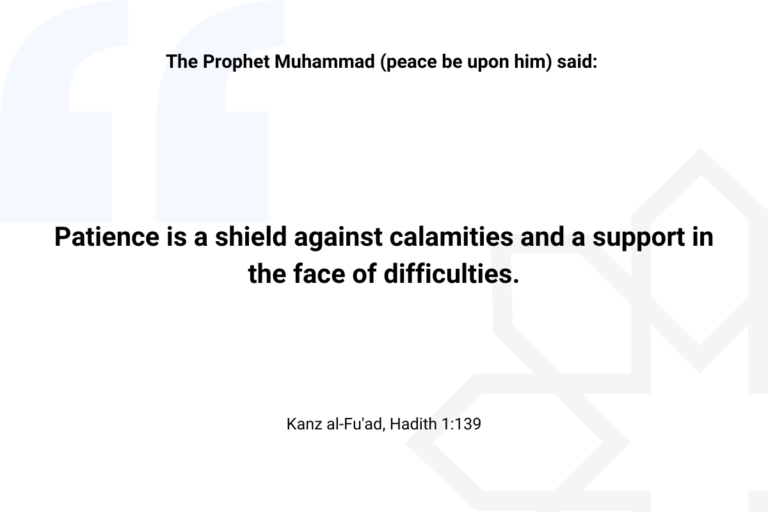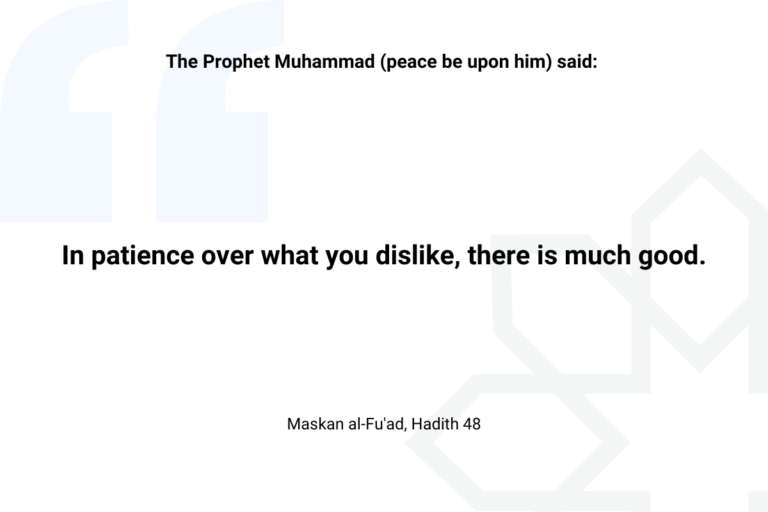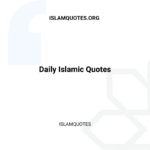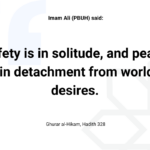Imam Sadiq (peace be upon him) said: “There is no extravagance in what keeps the body healthy. Rather, extravagance is in what wastes wealth and harms the body.”
Source: Bihar al-Anwar, Volume 6, Page 303, Hadith 75
In-Depth Interpretation of the Hadith
Introduction to Islamic Teachings on Extravagance
Islamic teachings consistently emphasize moderation and balance in all aspects of life. This hadith from Imam Sadiq (peace be upon him) clearly illustrates that extravagance is prohibited not only in financial matters but also in issues related to health. In Islam, extravagance means the excessive and unnecessary consumption of resources, leading to the waste of wealth and health.
The Impact of Extravagance on Wealth and Health
Definition of Extravagance
Extravagance, particularly in financial matters, means spending excessively and beyond one’s needs. This behavior often stems from a desire to display wealth or seek temporary pleasures, which not only jeopardizes an individual’s financial stability but also contradicts Islamic principles.
Economic Consequences of Extravagance
Extravagance can have severe economic consequences. Economists have long highlighted the dangers associated with excessive spending. Studies have shown that individuals who manage their finances prudently and avoid extravagance achieve higher levels of financial security and overall well-being. This scientific perspective aligns with the Islamic view that moderation is key to sustaining wealth and happiness.
Ethical Dimensions of Practicing Moderation
Moderation as an Ethical Obligation
In Islam, moderation is not only a financial principle but also a moral duty. Imam Sadiq’s (peace be upon him) advice underscores that maintaining one’s health is not considered extravagance. Instead, wasting wealth on harmful practices is the real issue. This guidance encourages Muslims to invest in their well-being wisely, avoiding wasteful and detrimental expenditures.
Scientific Insights on Health and Wealth Management
The Benefits of a Balanced Lifestyle
Modern scientific research supports the idea that maintaining a balanced lifestyle contributes to both physical health and financial stability. Proper diet, exercise, and healthcare are essential for long-term well-being and are seen as valuable investments rather than extravagance. Conversely, spending on harmful habits or luxury items that offer no real benefit can deplete resources and harm health.
Conclusion
Imam Sadiq’s (peace be upon him) hadith provides profound wisdom on the importance of moderation and the dangers of extravagance. By following this guidance, individuals can achieve a balanced and fulfilling life, ensuring their health and wealth are preserved. This teaching is a timeless reminder that true prosperity lies in prudent and ethical management of resources.

